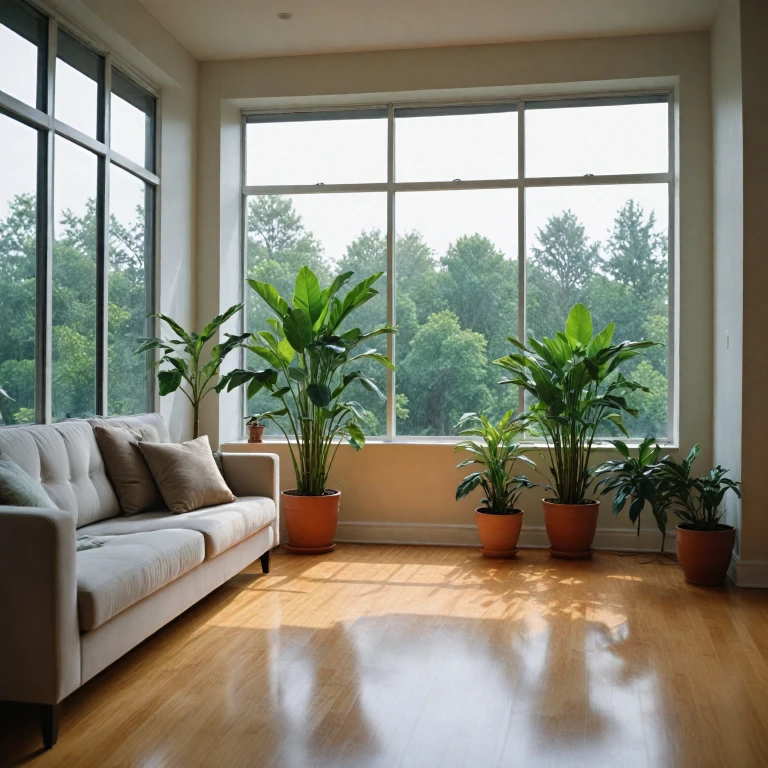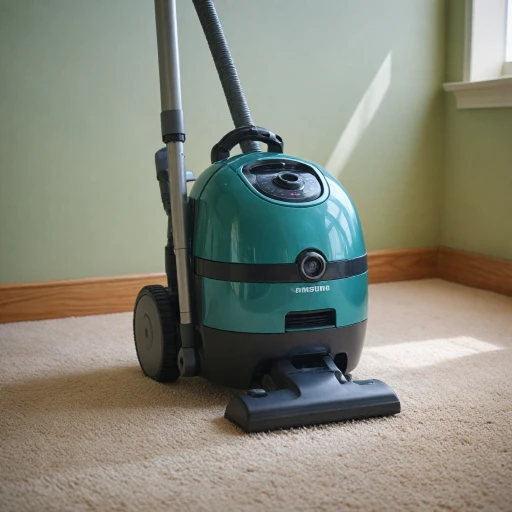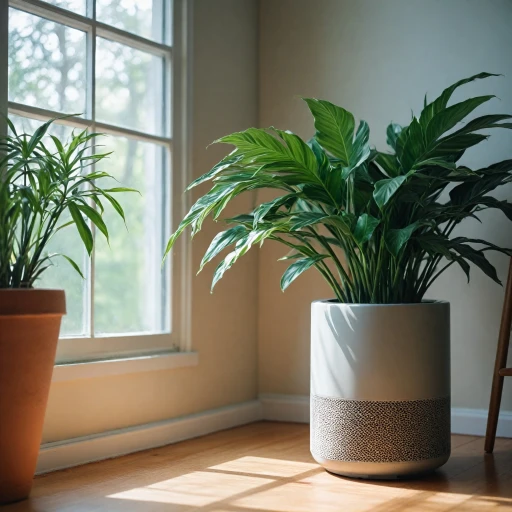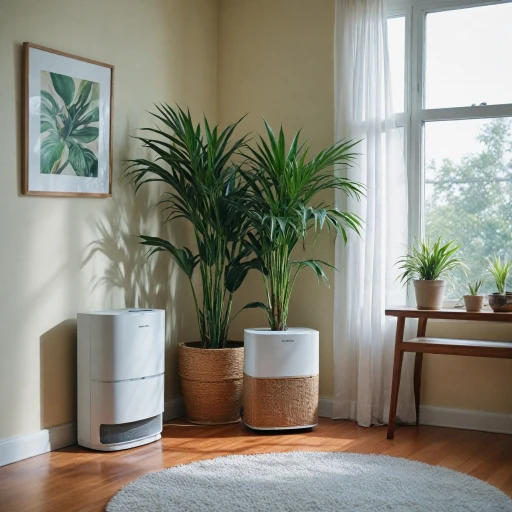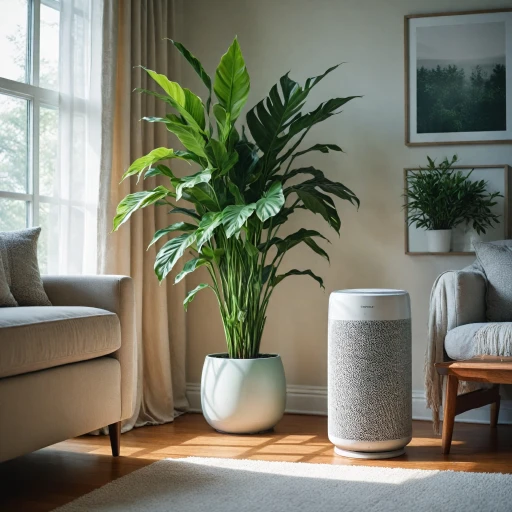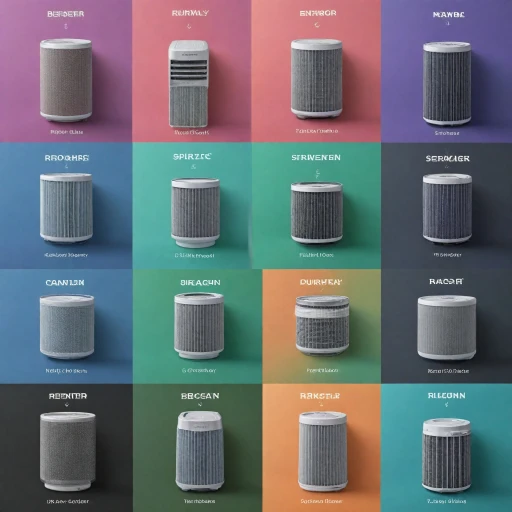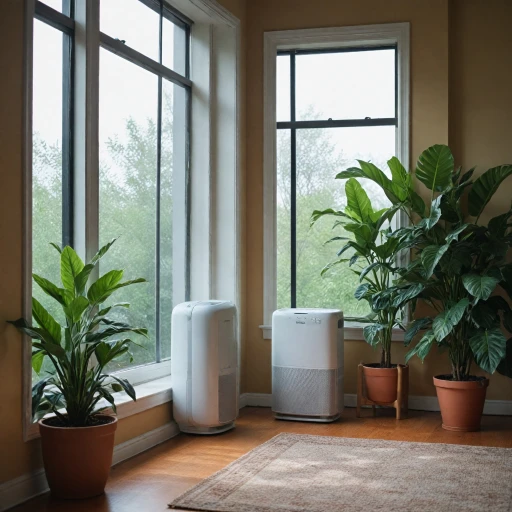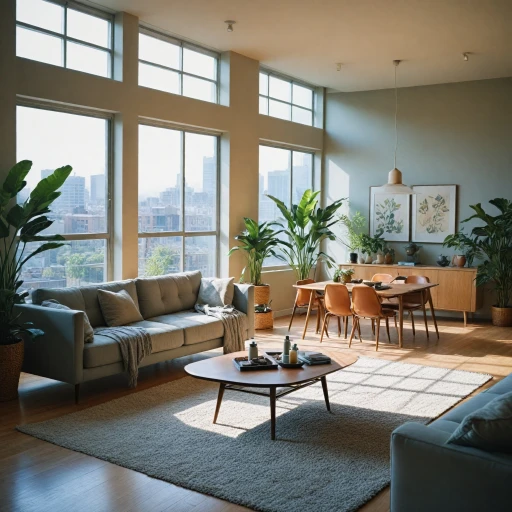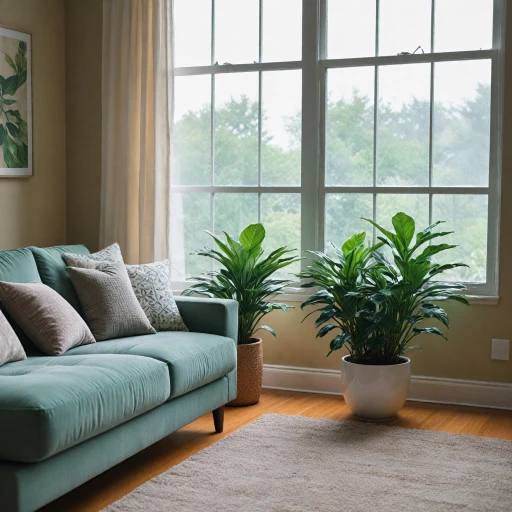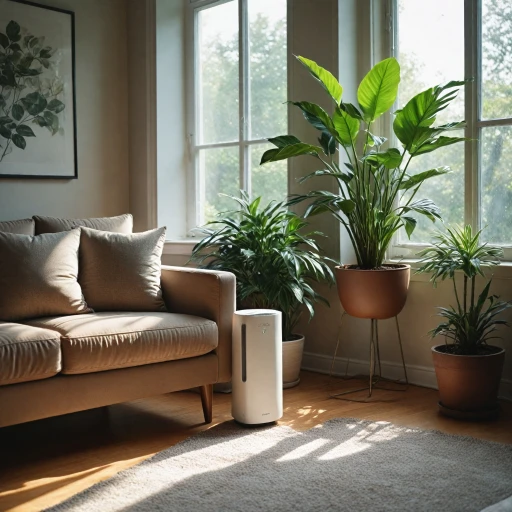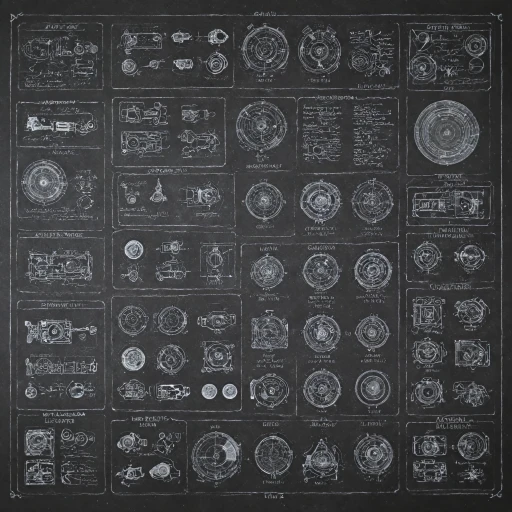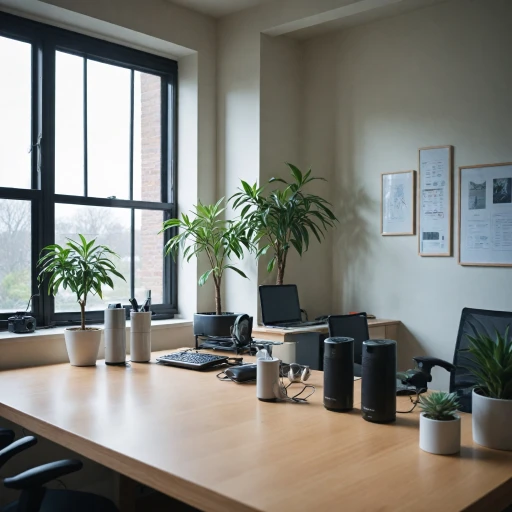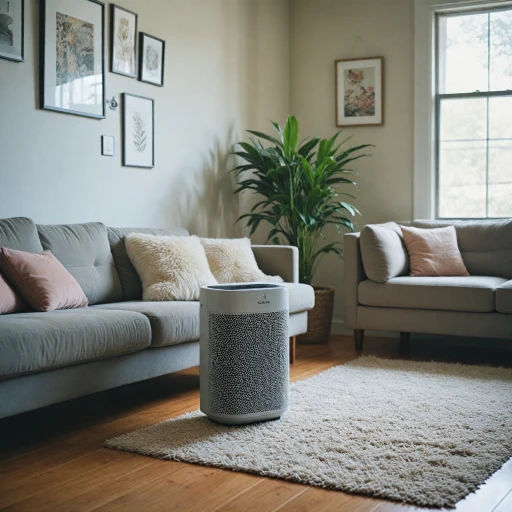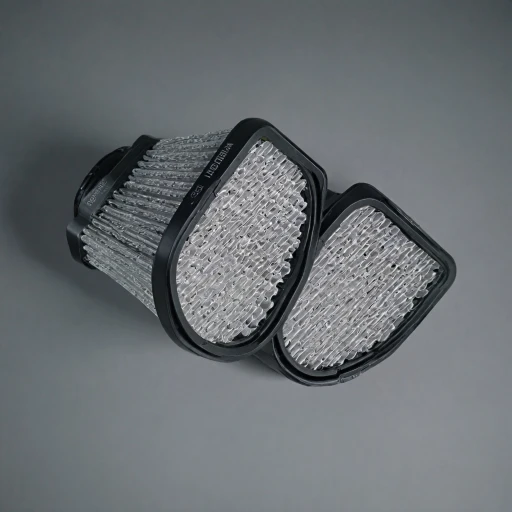
Understanding HEPA Filters
What Sets HEPA Filters Apart?
High Efficiency Particulate Air (HEPA) filters are renowned for their ability to significantly improve indoor air quality by capturing airborne particles that other filters might miss. Their exceptional design allows them to effectively trap at least 99.97% of particles that are as small as 0.3 microns. This capability makes them indispensable for creating a clean air environment in any home, especially those seeking to enhance air purity. HEPA filters are constructed from a dense mat of fibers fashioned from either fiberglass or polypropylene. The fibers work by capturing particles like dust, pollen, and pet dander through mechanisms such as interception, impact, and diffusion. The development of this sophisticated design positions HEPA filtration as the gold standard in the air purifier market. Unlike other filtration systems that rely on ionization or UV light, HEPA filters provide a physical barrier to airborne contaminants, ensuring highly efficient purification. Utilizing a whole home HEPA filter system integrated into the HVAC system can ensure consistent air filtration throughout the entire house, contributing greatly to improved air quality. In terms of coverage, home HEPA systems often outperform standalone air purifiers designed for large room sizes, offering a whole house solution at a justifiable price. While portable air purifiers like the Levoit Core are effective for individual rooms, a whole system setup offers unmatched convenience and effectiveness for a uniform environment. Whether you opt for a dedicated home air filter or consider alternatives like the True HEPA option, understanding the inherent qualities of these systems can guide you in making an informed decision. As you proceed through considerations about installation, maintenance, and comparisons with other filtration systems, having a solid understanding of HEPA filters will help you make the most of your investment in cleaner, healthier indoor air.Benefits of a Whole Home HEPA Filter System
The Advantages of a Unified Approach to Air Filtration
Investing in a whole home HEPA filtration system can significantly improve your indoor air quality. These systems are engineered to address multiple rooms and entire floors, unlike standalone air purifiers that are typically designed for specific room sizes. Understanding the holistic benefits can help you make an informed decision about your indoor air needs.
All-encompassing Coverage for Cleaner Air
A whole house HEPA system is integrated into your home's existing HVAC system, which enables it to filter air throughout all living spaces in your home. This approach ensures that particles, including dust, dander, and pollen, are removed efficiently, leaving you with high-quality, clean air in every room.
Efficiency and Convenience
- Comprehensive Cleaning: Unlike portable purifiers like the Levoit Core, a whole house system continually filters the air as part of your routine heating or cooling cycle.
- Improved HVAC Performance: By reducing the airborne load of particulate matter, these systems can enhance the efficiency of your HVAC units and potentially extend their lifespan.
- Consistent Air Quality: Home air quality becomes uniform, minimizing the need to address specific room size limitations that accompany smaller purifiers.
Cost and Longevity
While the initial price tag might seem high, the long-term investment benefits make whole home systems a worthwhile consideration. Whole house systems tend to have longer filter life spans, reducing the frequency of replacements compared to standalone models. Consequently, this reduces ongoing maintenance costs and offers you a smart air solution.
Installation Considerations
Setting Up a Comprehensive System for Better Air Quality
When considering a whole home HEPA filter system, it's essential to think about the various factors involved in the installation process. This will ensure your chosen system maximizes its potential to improve indoor air quality, capturing even the smallest particles effectively. Firstly, be aware of the compatibility issues with your existing HVAC system. Installing a whole house HEPA system might require modifications to ensure optimal airflow and efficiency. This can sometimes involve professional assistance, but investing in expert evaluation can prevent potential issues down the line. Another key element is determining the right room size capacity for your system. Manufacturers like Levoit offer different models designed for various home air scenarios. Whether you need specific filtration for a large room or comprehensive coverage across the entire house, matching the system's capacity with your room size is vital. Additionally, consider the location of your air purifier installation. Placing HEPA air filtration units near common sources of allergens or pollutants such as kitchens or garages can boost air quality significantly. Moreover, ensuring proper seals during installation can augment performance by minimizing leaks and ensuring that the entire home benefits from cleaner air. Don't forget about the ductwork. Ensure it's in good condition as aging ducts might hinder the efficacy of your whole house air filtration system. The price of these systems varies widely, often reflecting the quality, brand, and specific features. Platforms like Amazon offer a range of products; thorough research and reading reviews can guide your decision in selecting the right HEPA filter system for your home. Remember that while more affordable systems might sound tempting, investing in high-quality filtration and durable products often pays off in the long term. Prior to making any commitments, it's crucial to balance your expectations with the upfront costs and the potential ongoing expenses related to maintenance and upkeep. Such considerations will guarantee that your whole home HEPA filter system not only meets your immediate air quality needs but does so efficiently over the long run. For more insights on choosing between different air quality solutions, you might find this guide helpful.Maintenance and Upkeep
Ensuring Longevity and Efficiency
Maintaining your whole home HEPA filter system is essential to ensuring it functions optimally and provides the clean air benefits expected from this high-quality purifier. Routine maintenance can help preserve air quality and extend the lifespan of your system, ultimately providing a solid return on your investment in household air purification.
Regular Filter Replacement
- Frequency: Depending on the manufacturer's recommendations and the specific air purifier product, HEPA filters typically require replacement every 6 to 12 months. Levoit and other popular brands offer guidance for their specific models to ensure you maintain optimal filtration performance.
- Signs: Indicators that a filter change is overdue include a noticeable decline in indoor air quality, increased allergy symptoms, or unpleasant odors. Keeping an eye on these signs is critical in a large room or whole house setups.
- Price Consideration: While replacing filters incurs a cost, sourcing filters from retailers like Amazon can often provide cost-effective options without compromising quality.
Monitoring and Adjusting System Settings
Properly managing your air purifier settings based on room size, usage frequency, and air quality goals can enhance system efficiency. Some modern purifiers, including the Levoit Core series, come equipped with smart air capabilities to automate adjustments for optimal performance without manual intervention.
Regular HVAC System Checkups
For those with a whole home HEPA filtration system integrated into an HVAC framework, routine inspection of the HVAC system is equally important. Professionals can inspect for potential issues, ensuring your system continues to circulate clean air throughout the house efficiently.
Cleaning and Maintenance Tips
- Pre-Filters: Some systems include washable pre-filters to capture larger particles before they reach the main HEPA filter. Regular cleaning of these can prolong the life of the primary filter.
- Avoid Blockages: Ensure nothing obstructs air intake or outflow in the room where the purifier is located, which can vary based on installation—whether it's a standalone room unit or part of a whole house system.
- Location: If your purifier is portable, place it in areas with high air flow and away from walls to maximize its cleaning efficiency.
Comparing HEPA with Other Filtration Systems
Weighing HEPA Filters Against Other Air Filtration Solutions
When it comes to air purifiers, the HEPA filter often stands out as a flagship product. While it's renowned for its efficiency in capturing tiny particles and enhancing air quality within the home, understanding its place among other filtration systems is essential for making informed decisions.- Efficiency in Particle Removal: One of the main benefits of true HEPA filters is their capability to capture 99.97% of particles as small as 0.3 microns. This level of efficiency is particularly beneficial for large rooms where indoor air quality is crucial. Comparatively, other filters, such as activated carbon filters, are adept at removing odors and volatile organic compounds (VOCs), but may not match the high particle capture rate of HEPA filters.
- Versatility and Application: Whole home systems, often integrated with the HVAC system, can effectively service an entire house with clean air by employing HEPA filtration. Yet, room-specific units, like the popular Levoit Core, offer flexibility for targeting air purification efforts in specific areas within a house. This versatility can help tailor the purification needs to the specifics of various room sizes or occupancy requirements.
- Price Considerations: While HEPA filters are highly effective, they can come with a higher price tag compared to other types of filters. However, the investment in a whole house or room-specific purifier must be weighed against the long-term benefits, including reduced allergens and improved health. Some HEPA purifiers, available from retailers like Amazon, provide a range of pricing that accommodates different budgets.
- Filter Longevity and Maintenance: Unlike some basic filters that require frequent replacement due to limited capacity for capturing particles, HEPA filters in air purifiers generally offer a longer lifespan. This can equate to overall cost savings, despite the initially higher price. In contrast, certain advanced filtration systems may offer additional features such as smart air monitoring, which can further justify the investment for those seeking a comprehensive air purification system.
- Technological and Brand Variations: HEPA filtration systems, including those from brands like Levoit, provide robust options in the market, offering an effective way to maintain home air quality. However, it is prudent to consider technological innovations and specific product reviews to choose a system that best fits your particular needs.

